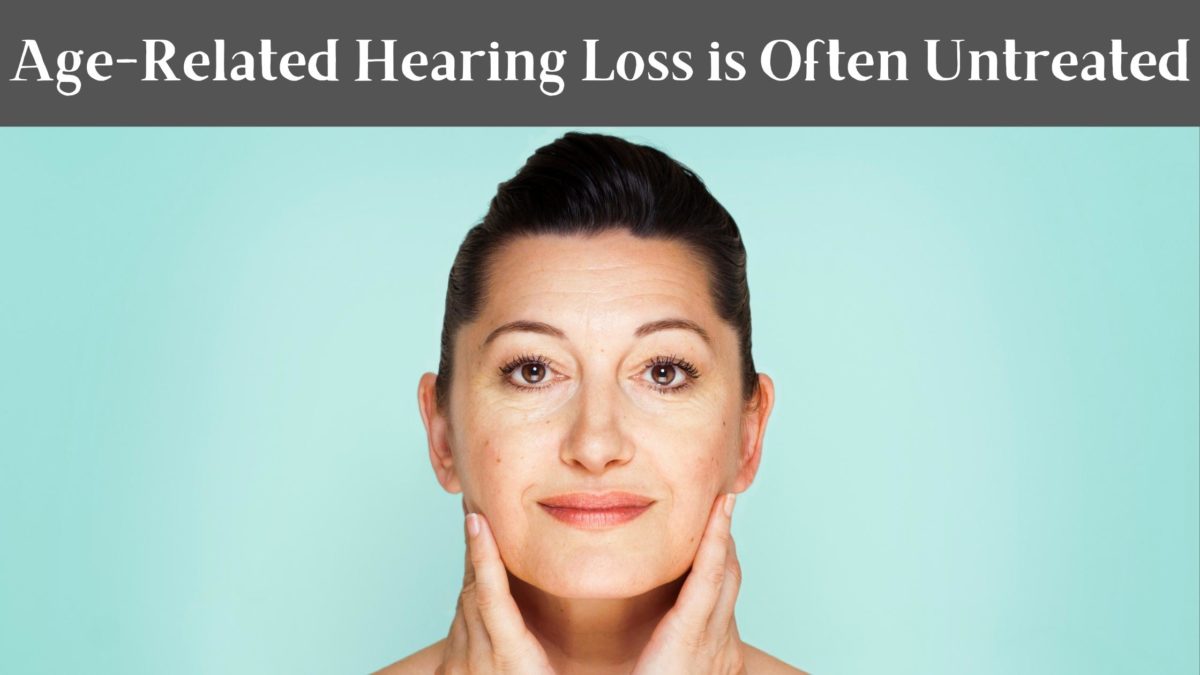Age-related hearing loss occurs naturally. As we get older, we may begin to experience changes in our hearing. While most hearing loss is irreversible, it can be treated – hearing aids, for instance, effectively enhance challenging sounds to make them accessible to your hearing again.
What Is the Risk of Age-Related Hearing Loss?
Age-related hearing loss is a form of hearing loss that coincides with the natural process of aging. People aged 65 and older should get a hearing test annually to screen for hearing loss. At age 65, roughly one in every three people will have significant hearing loss. That risk grows as we age. By age 75 the risk of significant hearing loss is around 50% – so one half of the population at this age has hearing loss. More remarkable, hearing loss risk rises steeply after age 75. At age 90, 90% of people have significant hearing loss.
Sadly, while over 35 million Americans live with hearing challenges, less than 1 in 5 people choose to treat their hearing loss. Treating hearing loss with hearing aids is the most common and effective method for managing hearing difficulty – hearing aids are small, convenient and powerful devices for improving comprehension and connection.
How Does Age-Related Hearing Loss Work?
Why are aging and hearing loss connected? A couple of factors influence the way we hear as we age. First, it is important to remember that many types of hearing damage have permanent repercussions for our hearing. Exposure to excessive noise, severe ear infections and even some types of medication can cause irreparable damage to the sensory cells responsible for much of how we hear.
The sensory cells our inner ear uses to detect sound waves are incredibly sensitive but are unable to repair themselves if they are damaged. This means that hearing loss occurs when these cells are taken out-of-commission, and also that that damage accrued throughout our lifetime. Our hearing never naturally “gets better” over time.
However, while gradual accumulation of hearing damage is part of what ties aging to hearing loss, it isn’t the whole story. The aging process seems to make our hearing increasingly more susceptible to injury as we get older. In the dramatic statistics above, we noted that 9 in 10 people over age 90 have some form of hearing loss – while at age 65 that risk is much closer to 1 in 3. Noise-related damage alone cannot account for such a sharp acceleration of risk.
Instead, researchers are just beginning to understand the ways in which the tiny components that help us hear may become more delicate and damage-prone as aging occurs. Without the ability to restore themselves, when our inner ears’ sensory cells become more brittle with age, permanent damage can occur at a much lower threshold.
The Importance of Treatment
If hearing aids can effectively treat hearing loss, why do only 20% of people opt for treatment? We often hear people with hearing loss argue that they don’t want to use hearing aids because it may make them “feel old”. In truth, hearing loss has a distinct relationship with aging – as we get older, our hearing becomes more vulnerable to damage and irreparable decline. However, it is the frustration and complication that come with untreated hearing loss that may actually be upsetting, and ignoring treatment can worsen the problem.
In fact, the best way to make sure hearing loss doesn’t make you “feel old” is to proactively treat your hearing loss, using hearing aids or assistive devices to improve your listening and comprehension. Today’s hearing aids are more powerful, nuanced and discreet than ever before – small and powerful devices that can help you stay engaged with the people and activities you love most.
No matter your age or the degree of hearing loss you experience, opting for treatment can improve your quality of life and health. Untreated hearing loss is linked to high risk of depression, anxiety and isolation, as well as the risk of sustaining injuries from accidental falls and developing dementia. In contrast, using hearing aids eases the stressors that hearing loss can create and helps you hear a wider, more natural range of sounds.
If you have experienced changes in your hearing and are over the age of 50, it is important to schedule an annual hearing test. An annual hearing test ensures that you can monitor your hearing abilities and if necessary, you can benefit from treatment that helps you to continue to hear at your best!

